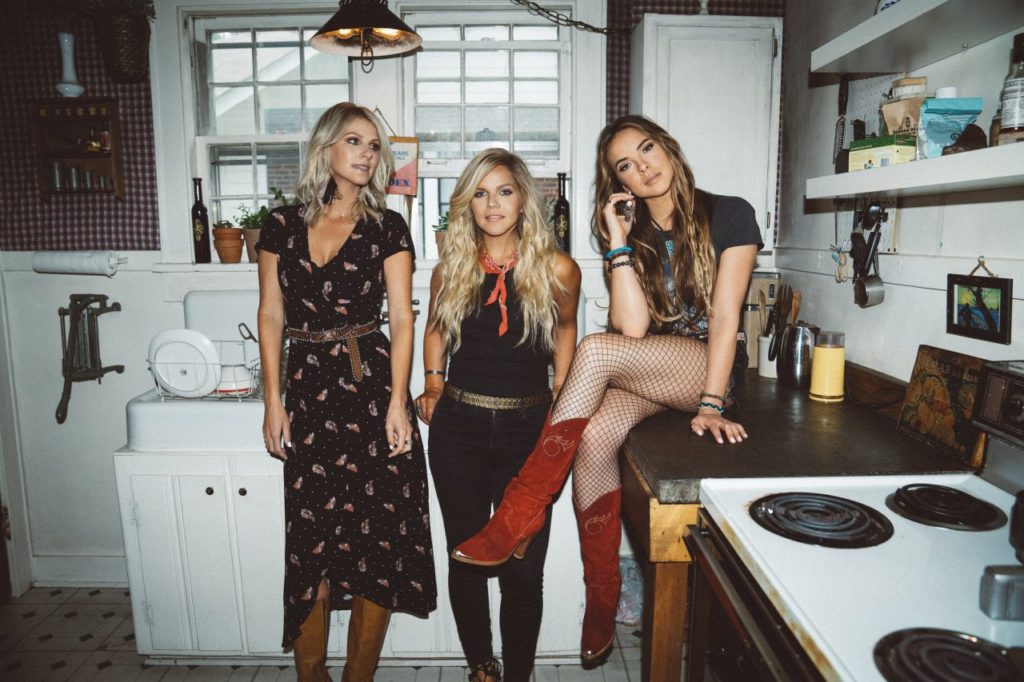
For as long as I can remember, I’ve always been fascinated by songwriting. Who or what inspired a songwriter to write that song? What happens behind the scenes in the writing room? What’s the most personal lyric in the song?
I’ve had several songwriting columns for various publications over the years, including You Sing I Write. This week’s #ThrowbackThursday is with Dan + Shay during a chat for CBS Radio in May of 2015 when the pair taught me how to write a song. The article never made that publication due to a layoff. When a new editor asked me the following year to start a monthly column I knew I wanted mine to highlight songwriters. That chat with Dan + Shay in 2015 became one of my first features for Sounds Like Nashville’s The Writers’ Round series, which you can read below.
Dan + Shay met in the unlikeliest of places: underneath a tent at a party in Nashville, Tenn. nearly 10 years ago. The two immediately hit it off and met the next day to write and have been co-writers and band members ever since. In our interview, the duo share their tips on songwriting and walk us through a typical co-write.
As Shay Mooney explains, it’s important to be open when writing a song. He says he and Dan Smyers work so well together because they’re not afraid to say something stupid. He also likens songwriting to a puzzle. “When you go into a co-write everyone brings in their own little piece to the puzzle,” he shares. “It’s a lot of fun.”
Being descriptive is key and Dan + Shay often rely on specific visuals that allow their songs to stand out to listeners. On “Nothin’ Like You,” they sing of a girl with “purple untied shoestrings” who is also “rockin’ that rock ‘n’ roll t-shirt.” Their single, “From the Ground Up,” gives the visual of “a painted pink room” as they sing of a baby girl on the way for the couple in the song.
While Dan + Shay say there is no set formula to writing songs, they always aim to pen “something fresh,” or a perspective that hasn’t been used before. They admit that sometimes it takes them hours to settle on a hook and say that they often try to start with a song title or concept in mind.
Settling into a conference room atop a bustling street corner on Seventh Avenue in New York City, Dan + Shay admit that the Big Apple is an inspiring and mesmerizing place for them. New York is a cultural center that has every ethnic food imaginable and for many is the land of opportunity as far as career choices. This is not lost on the duo. In fact, it inspires them to start writing a song.

“A concept if you were going to write a song — thinking of something different that might not have been said — I was walking down the street and there’s so many beautiful girls here,” Smyers observed. “Everybody here is good looking, everybody is dressed well, and when you’re living here it’s probably tough to find the perfect person, because there’s so many people. It’s like that scene in the movie The Butterfly Effect, where two people are passing each other on the street and they lock eyes, and you fall in love with somebody like that.”
He pauses before he continues what soon becomes a song idea.
“Out of all the millions of people here in this one place, you’re walking by and you fall in love with one person. Of all the people in New York, how do you find that one person?” he asks.
A unique concept, he and Mooney decide to elaborate on this and a title eventually emerges from his observation: “Walking By.” In doing so, Dan + Shay walk us through a typical co-write as Smyers explains that in Nashville songwriting is a 9-to-5 job. Most of the time the writers meet around 10 a.m. and chat about song ideas over coffee.
“The best way to do it, without going in circles, is coming up with a concept or a title. Say we were doing a title, for example, ‘Walking By.’ If we were going to sing about that concept — whether it’s you pass someone and they catch your eye, they’re pretty, might that person be the one — you want to get a title. If you don’t have a title, at least a strong concept to write around,” Smyers explains.
As Mooney takes out a guitar, he starts fiddling around on it, humming to himself, trying to come up with a melody while Smyers wraps his head around the lyrics. Eventually, the lyrics pour out as the duo decide to start with the first verse, explaining that it’s often easier to start from the beginning of a song and paint a picture. Smyers adds that it’s more important to flush out a concept than to worry about rhyming because working on the latter will often result in a finished song that has no meat to it.
Smyers says they always strive to have something visual in their lyrics. While writing a song about New York, he references Ryan Adams’ “New York, New York” as one example that vividly describes specific places in the City.
“Whether somebody has been there or not, it’s still good to throw something in like that, because it paints an honest picture of ‘they were really there,’ rather than ‘two busy streets, walking through,’” Smyers advises.
Realizing they’re high above Seventh Avenue, the lyrics start falling out.
“There she was, Seventh Avenue,” Mooney sings before Smyers cuts in.
“There she was, walking by. Seventh Avenue baby blue eyes,” Smyers continues.
Mooney then hums a few more lines as Smyers explains why he includes the title, “Walking By.”
“We always like to start with something simple, like if that was the first part. ‘There she was, walking by. Seventh Avenue baby blue eyes. Busy street. Green light. Her and me locked, eyes.’ Then you try to pick it up and build a little more energy dynamic-wise coming into a chorus,” Smyers shares. “Painting that picture of what’s going on.”
He adds that as a writer, you don’t want to give away what you’re doing too soon to the listener because then you don’t have anywhere to go. Case in point: the guy in the song probably doesn’t walk right up to the girl in the first verse.
“The chorus, since you’re going to repeat it throughout the song, it could be more generalizations. ‘What if she’s the one?’ Then in the second verse you stop her on the sidewalk and ask her name,” Smyers says. “Then you could still repeat that chorus. She might be the one, and if I never did this, never took this chance, I’d never know.”
Mooney then suggests, “what if she was thinking what you were thinking?” Then he hums a few words, singing she was “running around like a hurricane” while Smyers continues to fathom the vastness of New York.
“That’s the crazy thing about this city, what if you passed your wife on the street [and] you didn’t say anything and lost that opportunity? That’s a crazy concept about being here.”
Mooney says as a songwriter, he always wants to know how his song will conclude while he’s writing it but that doesn’t always happen. “You can’t force it. You never know really where you’re going to end up. Sometimes you do, and hopefully you do. If you do, you can write the song a lot faster. Sometimes you’re writing a song and you have no idea where you’re going to end up. It’s always interesting to see,” he says.
Meanwhile, band mate Smyers explains that while he doesn’t know how this particular song will close he wants to prevent it from being cheesy so they’ll avoid lines like “she gave me her number!” and “we got married!”
“I’d probably make it, you walk by and maybe time has passed and you never said anything. Maybe you just said hello, but you’re still thinking about that person, to keep the concept of ‘what could it have been,’” he explains.
Dan + Shay call songwriting a “crazy, chaotic process” and advise that there’s no right or wrong way to do it. They say they typically start with a concept like they did above with “Walking By.”
“Luckily there, we did have a title. Sometimes you don’t, but if you have a strong concept or an idea, somewhere to go, it’s a little bit easier,” Smyers shares.
So what’s the best advice Dan + Shay have received on songwriting? Mooney says it’s to keep writing.
“I think the most important thing you can do as a songwriter is just to write a million songs. You have to move here, you have to work really, really hard because there are 50 million other people that are trying to do what you do, and they’re probably working just as hard or harder than you are,” he says. “You have to completely sacrifice everything and go for it, and write as many songs as you possibly can.”


